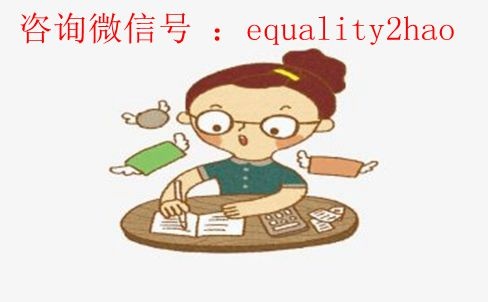英国毕业论文代写
EssayQuality,英国最靠谱的论文代写、英国毕业论文代写、英国网课代修、网课代上英国。100%准时交付,一旦接单决不延误,接受12小时急单。100%原创内容,所有文章均经过turnitin®检测...
Sukuk (Islamic Investment Participation Certificates)——伊斯兰债券(伊斯兰投资参与证书)
Sukuk is the Arabic name for a monetary certificate but can be witnessed as an Islamic correspondence of debentures. Nevertheless, definitely assured earnings, interest bearing bonds are not acceptable by Islam; therefore, securities that abide with the Islamic law are Sukuk. Sukuk: Plural of 'Sakk', this refers to a financial paper illustrating entitlement of the holder to the amount of money shown on it. The English word "cheque" is a derivative from it. Technically, Sukuk are financial apparatus entitling their holders to some financial asserts.
The Liquidity Management Centre is designed to manage the asset liquidity mismatch, to create a pool of quality assets for Islamic financial institutions (IFIs) and an Islamic interbank money market collaterally with enhancing Shariah credibility and achieving higher returns for investors and shareholders. It also facilitates the pooling of assets acquired from the government, financial institutions and companies to be securitized through the issuance of tradable instruments (sukuk), where Islamic Financial Institutions will invest their surplus liquidity. (Islamization of Financial System in Pakistan, 2003)
Corporate sukuk issuance, reported by International Islamic Financial Market (IIFM), an industry association grew from USD 0.4 billion in 2000 to USD 24.5 billion in 2006 alone. Growth in this specific commodity topped 122% in 2006 alone. (Is Islamic finance at tipping point?, 2008)
The Need for Tangible Assets——对有形资产的需要
Sharia'h necessitates that investments should only be hoisted for transacting in, or construction of, explicit and certain assets. Transacting in 'indebtedness' is prohibited and since the conventional bond are based on the mentioned criteria issuing of conventional bonds by any means wouldn't be Shariah compliant. Thus all Sukuk returns and cash flows will be based on assets bought or built making all the incom free from interest. It is noteworthy that Equity investment is Sharia'h compliant and adjusts quite good enough among the risk/return guidelines of Islam.
Islamic Equity Funds——伊斯兰股票基金
In the Islamic financial market the equity funds for investments are the most swiftly growing sector. To date, there are almost 100 Islamic equity funds operating worldwide. The accumlated assets handled through these funds currently surpass US$5 billion while the growth rate of these funds can be estimated at 12 - 15% per annum. Keeping in view the current prospects of these funds it can easily be said that very soon investments would be diverted towards this specific sector in tandom. Looking at this very lucrative market some of the majors from the west have intiated or are planning to deploy parallel Musharkah certificates. (Zaheer & Hassan)
Free trade advocates the implementation of unrestricted free competition in the international market and the state's policy of not intervening in foreign trade.From the theoretical point of view,such policies and functions mainly include the following aspects:First,free trade policies can form a favorable division of labor.It can enhance the special production skills of various countries'specialties,increase production efficiency,and achieve optimal allocation of production factors.It can expand the real income of the people.Second,under the free trade environment,a country develops its own most advanced sector,with higher labor productivity and relatively lower costs.Third,it can import cheap goods and reduce national expenditures.Free trade can prevent monopoly formation and strengthen competition.It helps improve economic efficiency.Fourth,it can increase profitability and promote capital accumulation.At present,the free trade policy and the protection trade policy have become the foreign trade policies of the two tombs used alternately by developed countries under different economic development conditions.Protection of trade is the use of its political power and tariffs by the state.It is a policy used to protect the domestic market and prevent the competition of foreign goods(Wu,2015).Its main point is that the state adopts various measures to restrict imports to protect its domestic market from the impact of foreign goods.And,it gives preferential treatment and subsidies to exporters in the country to encourage exports.The protection of trade policy is a foreign trade policy adopted by developed countries in the face of difficulties in economic development.At present,some developing countries have mostly adopted the policy of protecting trade.Their purpose is to protect the development of national industry and expand foreign trade.While free trade brings various risks to developing countries,it also brings opportunities.
There are two positive aspects of free trade to developing countries.对发展中国家的自由贸易有两个积极方面。
首先,发展中国家在国际贸易中的地位不断提高,将有助于发展中国家以更强有力的姿态参与国际贸易。发展中国家可以对发达国家在国际贸易中的不公平待遇作出更大的回应。20世纪80年代中期以后,发展中国家贸易额占国际贸易总额的比例基本呈上升趋势。特别是进入21世纪以来,发展中国家在国际贸易中的地位越来越重要。其中,中国对外贸易的发展尤为引人注目。2009年,中国超过德国成为世界上最大的出口国,仅次于美国的世界第二大贸易国(van hoa,2008年)。
Firstly,the rising status of developing countries in international trade will help developing countries to participate in international trade with a stronger stance.Developing countries can respond with greater voice to the unfair treatment from developed countries in international trade.After the mid-80s of the 20th century,the proportion of the trade volume of developing countries in the total volume of international trade basically showed a rising trend.Especially since entering the 21st century,developing countries have become increasingly important in international trade.Among them,the development of China's foreign trade is particularly eye-catching.In 2009,China surpassed Germany as the world’s largest exporter,second only to the United States’world’s second largest trading nation(van Hoa,2008).Trade liberalization is an important feature of current international trade and world economic development,and is a manifestation of economic globalization in the field of trade.It is premised on the promotion of a market economy in the global context,with the improvement of the degree of socialization of production as the background,with the broad implementation of market access and national treatment as the main content,the weakening of the national government’s administrative intervention,and the international economic and trade Rapid development as a symbol,it is a process of continuous advancement and evolution.Under the general trend of economic globalization,trade liberalization not only affects the scale and speed of international trade,but also affects the effective allocation of world resources.The rapid growth of international trade has promoted the deepening and expansion of the international division of labor and required that all kinds of commodities and elements be free to flow around the world to obtain a more rational and effective allocation.In this dynamic process,countries need to gradually eliminate trade fish and discriminatory treatment to meet the needs of economic globalization.At the same time,they need to establish a freer trade environment to promote their own industrial development and sustained economic growth.

